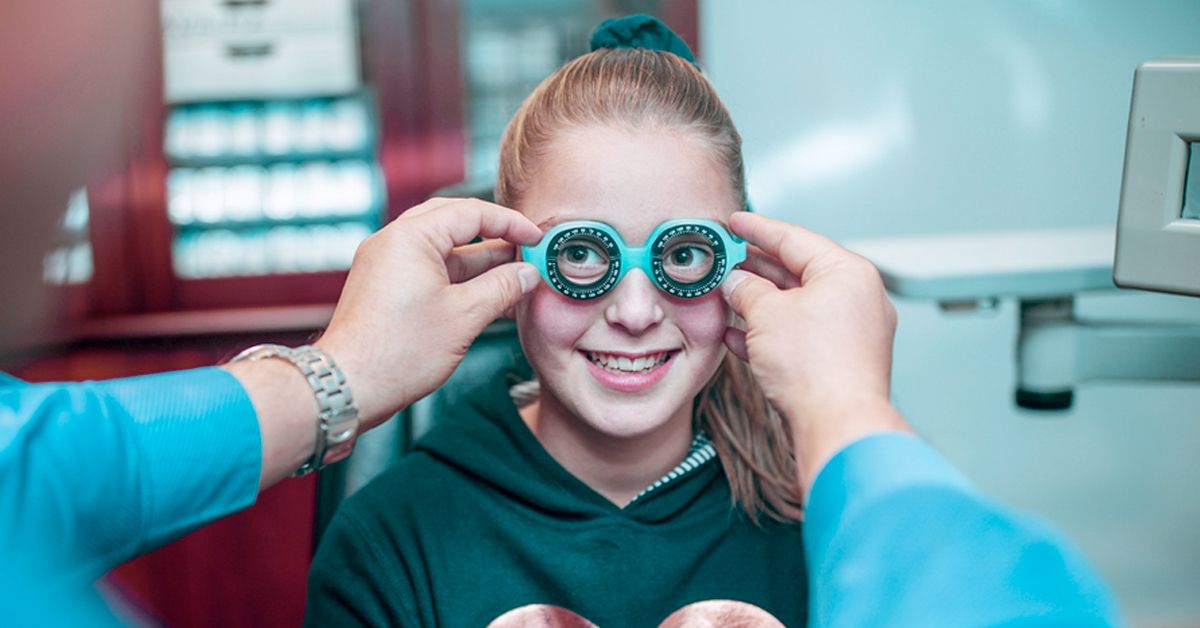Is Refractive Surgery Right for You? Aspects to Take Into Consideration for Better Eyecare
In the realm of eye treatment, the choice to undergo refractive surgical treatment is a weighty one that demands thoughtful factor to consider. As individuals seek clearness and liberty from the constraints of restorative lenses, countless factors come into play when figuring out the viability of such a procedure. From the complexities of one's ocular wellness to the details of daily practices and personal assumptions, each aspect holds importance in the wider landscape of refractive surgery candidacy. By assessing these crucial elements with treatment and accuracy, a more clear course in the direction of educated decision-making arises.
Eye Wellness Examination
When taking into consideration refractive surgical procedure, a detailed eye health and wellness assessment is important to evaluate the viability of the procedure for each person. eye center andalusia. This examination includes a series of examinations and evaluations performed by an eye care professional to establish the general health of the eyes, the visibility of any type of underlying problems, and the stability of the refractive mistake
Throughout the assessment, numerous aspects are thought about, such as the person's medical background, existing eye prescription, corneal thickness, student size, and tear movie high quality. These assessments assist to determine any contraindications to refractive surgical procedure, such as corneal abnormalities, cataracts, or neglected eye infections. In addition, the assessment helps to take care of individual expectations pertaining to the prospective outcomes of the surgical procedure based on their special eye qualities.
Eventually, the eye health examination is essential in making sure the safety and security and effectiveness of refractive surgical treatment, as it provides important understandings right into the individual's eye health and wellness standing and helps identify one of the most appropriate therapy options for accomplishing optimum visual end results. (andalusia pediatrics)
Way Of Life Assessment
A complete lifestyle analysis is essential in identifying the viability of refractive surgery for an individual's visual modification demands. Lifestyle factors such as occupation, hobbies, and everyday tasks play a critical duty in the decision-making process regarding refractive surgical treatment. For example, people with occupations that involve a high level of exercise or exposure to ecological components might have different visual needs contrasted to those with inactive desk jobs. Recognizing exactly how a person's way of living may impact their vision post-surgery is important for managing assumptions and guaranteeing optimal end results.
Moreover, way of life practices such as sports participation, outside activities, or also skin care regimens can influence the recovery process and general success of refractive surgical procedure. By performing a detailed way of living evaluation, eye care specialists can tailor their recommendations and treatment plans to fulfill the unique needs of each patient, inevitably leading to enhanced aesthetic end results and fulfillment.
Assumption Placement

Patients require to comprehend that while lots of individuals accomplish 20/20 vision Check This Out or better complying with refractive surgery, some might still require glasses for specific tasks like reading or driving at evening. Handling these assumptions helps stop disappointment and discontentment post-surgery, leading to an extra positive general experience for the patient.
Danger Evaluation

Aspects that might enhance the threat of problems consist of age, certain clinical problems like autoimmune diseases, unpredictable vision prescription, thin corneas, and impractical patient assumptions. Additionally, selecting a skilled and knowledgeable view it doctor, following pre and post-operative treatment guidelines vigilantly, and revealing any relevant clinical background can help reduce threats.
To decrease the possibility of difficulties, ophthalmologists carry out detailed pre-operative evaluations to determine any type of contraindications to surgery. They likewise discuss the potential dangers and advantages with people during the examination procedure. By taking part in open interaction and shared decision-making, both the eye doctor and the individual can function with each other to establish if refractive surgery is the right choice based on individual risk profiles and desired outcomes.
Consultation Importance
Taking into consideration the crucial role of informed decision-making in evaluating risks and potential complications in refractive surgery, the appointment procedure holds substantial value in assisting individuals towards optimal end results. Throughout the examination, the ophthalmologist assesses the patient's eye wellness, refractive mistakes, and general suitability for surgical procedure. This first evaluation is important in identifying the most ideal procedure for each person, considering elements such as corneal density, student size, and existing eye problems.
Furthermore, the consultation works as a chance for clients to review their expectations, concerns, and any kind of concerns they might have pertaining to the surgical treatment. Clear communication between the cosmetic surgeon and the client is vital to ensure realistic assumptions and a thorough understanding of the possible dangers and benefits included.
Additionally, the appointment enables the surgeon to describe the different surgical alternatives offered, their corresponding results, and the post-operative treatment needed. This extensive conversation empowers individuals to make well-informed choices regarding their eye treatment, resulting in far better complete satisfaction and end results post-surgery.
Conclusion
Finally, individuals thinking about refractive surgical procedure ought to undertake a comprehensive eye health examination, analyze their lifestyle practices, straighten their assumptions with see this here possible outcomes, evaluate the involved dangers, and focus on consultations with eye care experts. These aspects play a critical role in determining the suitability of refractive surgical treatment for every person, making certain optimum outcomes and complete satisfaction with the procedure.
Individuals taking into consideration refractive surgical procedure usually have high assumptions concerning the outcomes, expecting best vision without the need for glasses or contact lenses. While refractive surgical procedure can considerably enhance vision and minimize dependency on aesthetic aids, it is vital for individuals to comprehend that results might differ based on private elements such as the degree of refractive mistake, corneal density, and general eye health.
By involving in open interaction and shared decision-making, both the person and the ophthalmologist can work together to determine if refractive surgical procedure is the ideal choice based on specific danger profiles and wanted results.
Considering the critical duty of notified decision-making in assessing threats and prospective complications in refractive surgical procedure, the assessment process holds considerable significance in leading clients in the direction of ideal outcomes. Throughout the consultation, the eye doctor evaluates the individual's eye health, refractive mistakes, and overall suitability for surgical procedure.